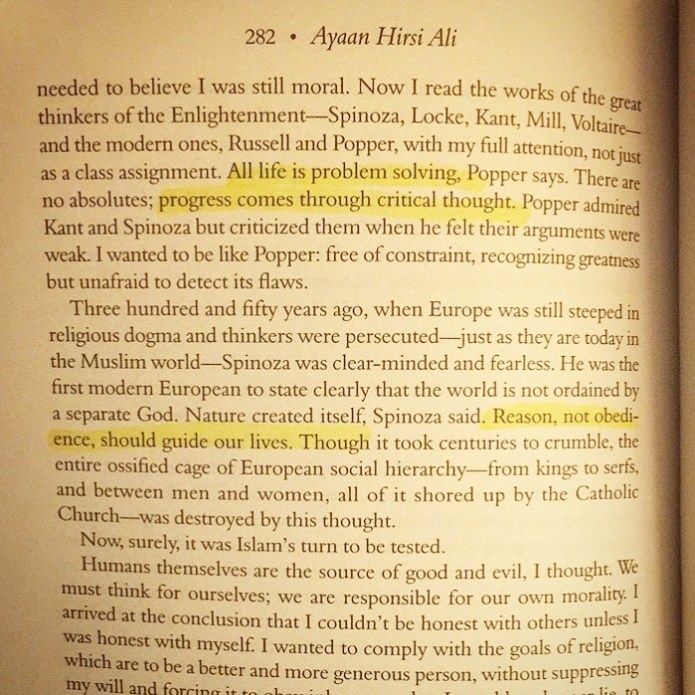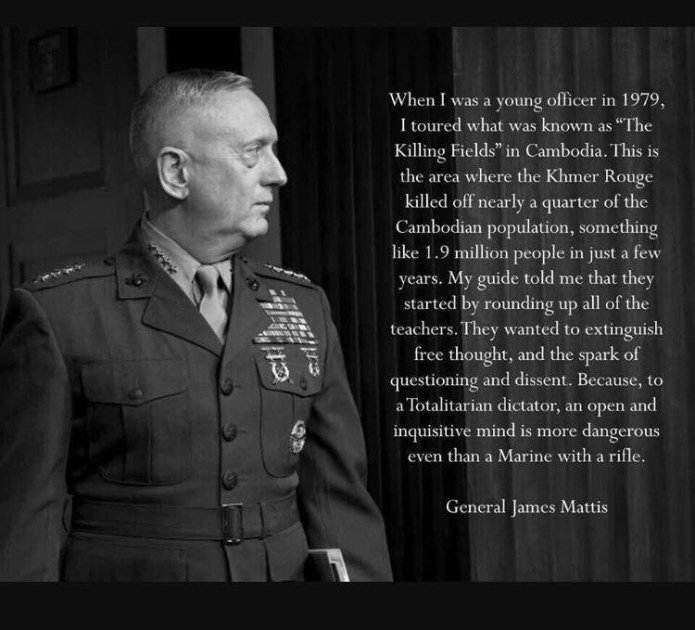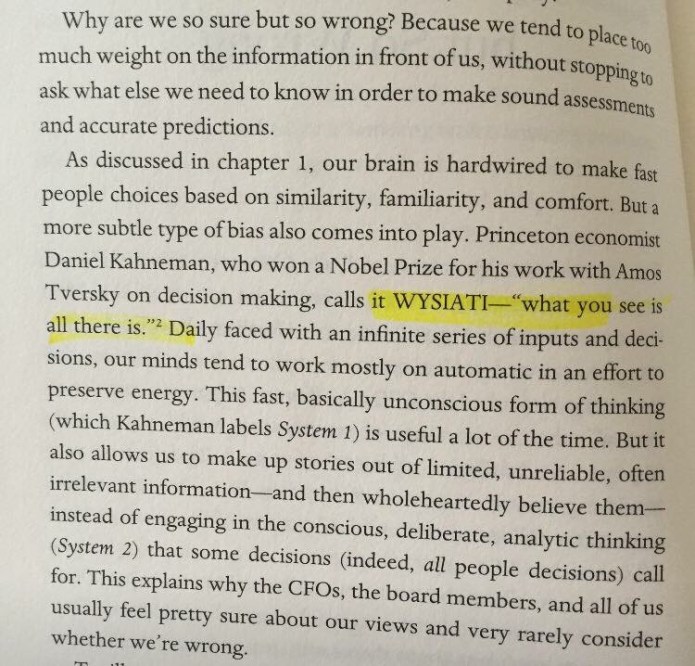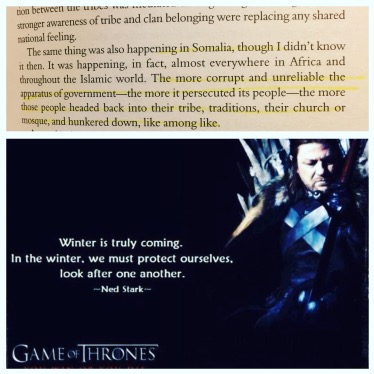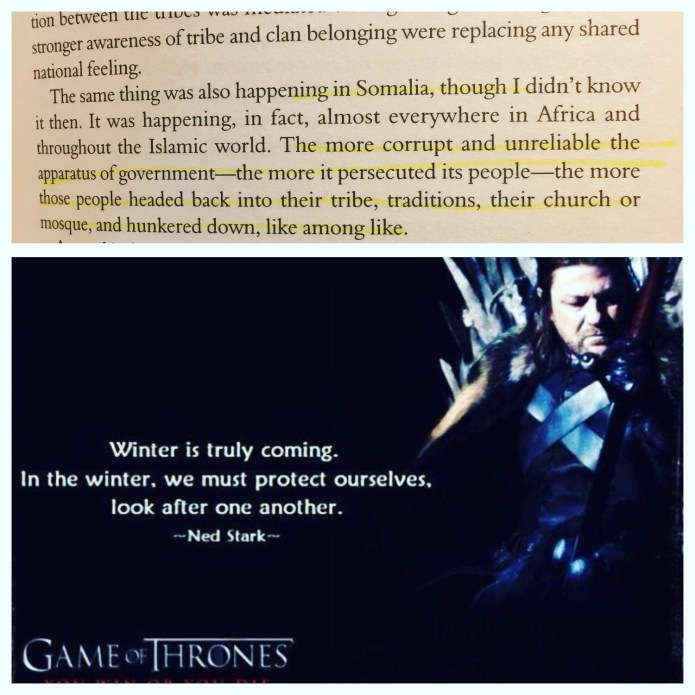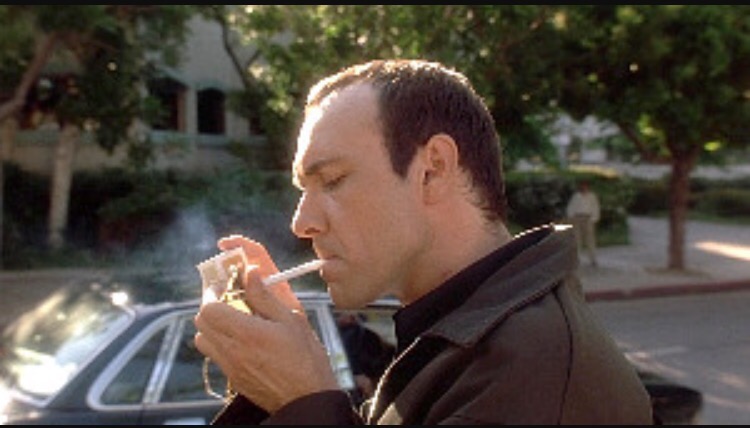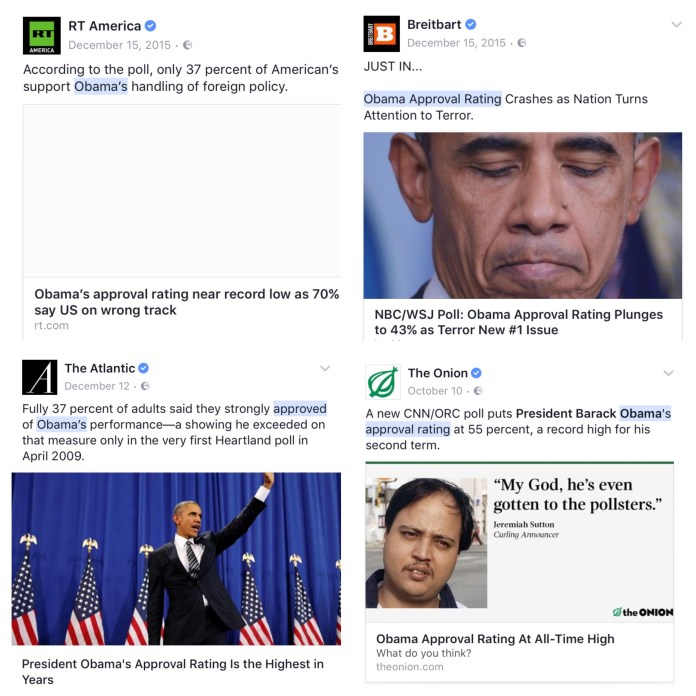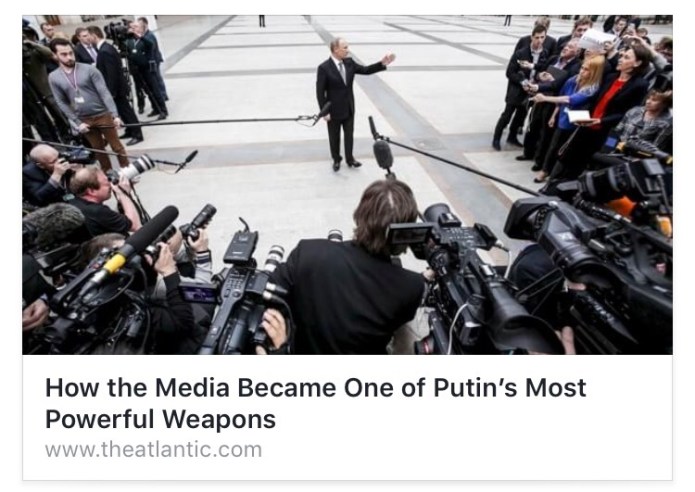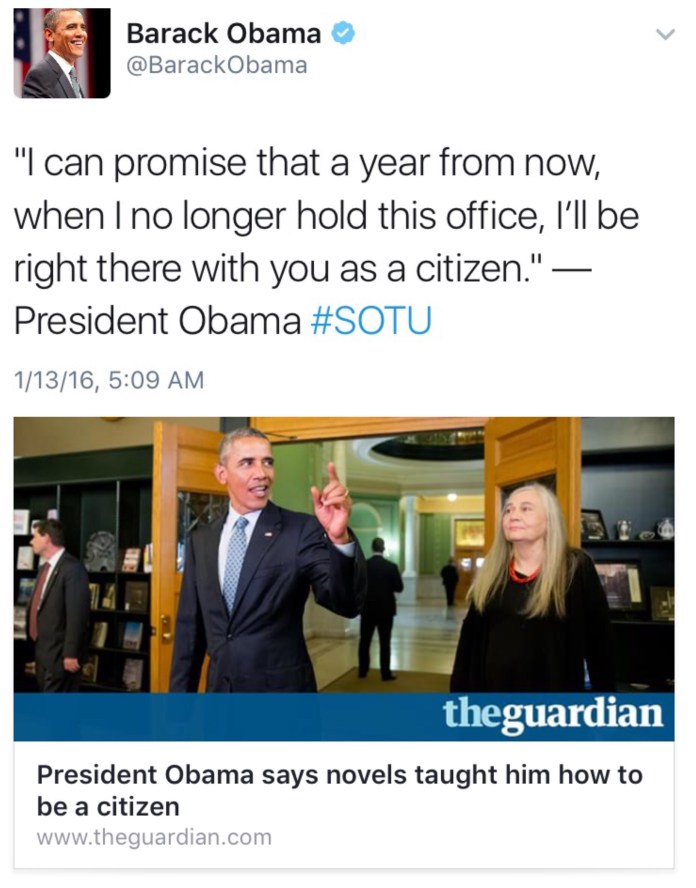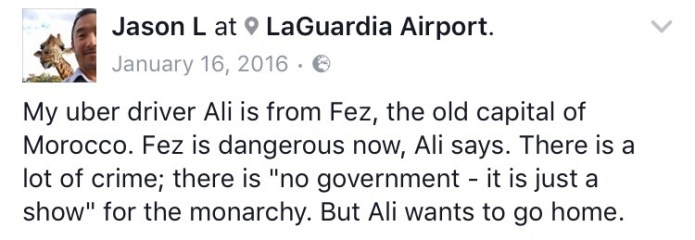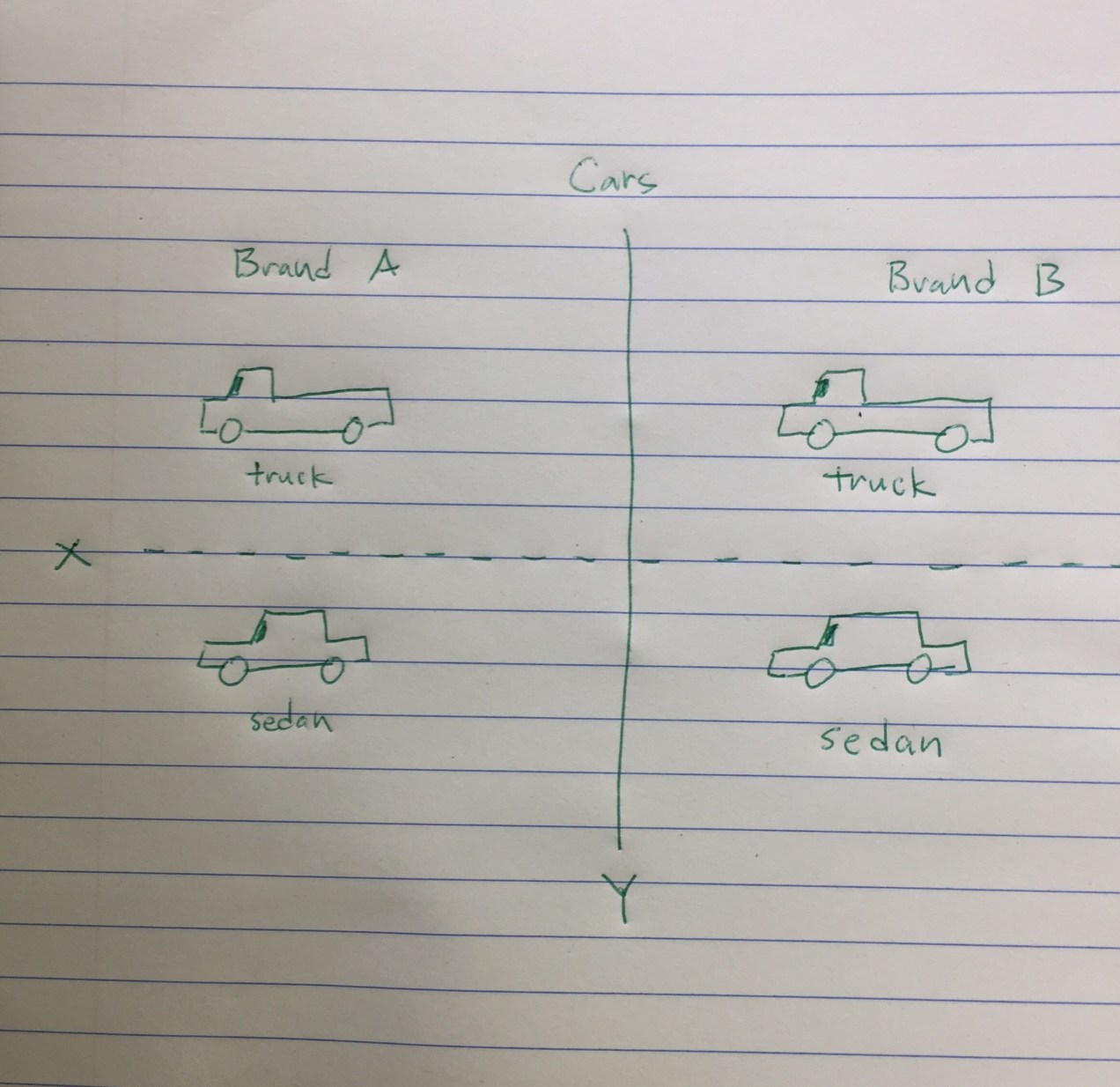Epilogue
10 February 2017
The affair with the White House list adds to my suspicion that part of the reason we *even got to where we are now with a travel ban, is not only:
(a) a disproportionate fear stoked by terror (i.e. the acts of terror succeeded), but also
(b) the belief in the nature of that terror being “the West v the Rest” (being a direct result of a bias from believing that What You See Is All There Is)
First (a), then (b), then someone (40-plus percent of Americans polled) thinks a travel ban targeting “the Rest” is a rational, even necessary, response to a perceived problem.
See, Katie Mettler, “What’s largely and glaringly missing from Trump’s list of terrorist attacks: Non-Western victims“, The Washington Post, February 7, 2017:
“What the data show is that a vast majority of terrorist attacks — about 98 percent between 2001 and 2015 — occurred outside the United States and Western Europe, even if the White House’s list and rhetoric may suggest otherwise.
“658 people were killed in 46 attacks in Europe and the Americas. During that same time period, 28,031 people died in 2,063 attacks in the rest of the world.
“Among the deadliest attacks noted in the analysis were a suicide bombing that killed 292 in Baghdad, an attack by Murle tribesman that killed 208 in Ethiopia and the downing of a Russian airliner by an explosive device that killed 224 people, almost all of them Russian.
“The only one mentioned on the White House’s list was the airline crash.
“The list also left out the massacre of more than 140 civilians by Islamic State militants in the Syrian border city Kobane in June 2015. It marked one of the terrorist group’s deadliest assaults on civilians since it declared a caliphate in the region the year before.
“The death toll in the West tends to be lower most of the time, but the coverage the West gets is an order of magnitude larger,” Mohamad Bazzi, a journalism professor at New York University and former Middle East bureau chief for Newsday, told FiveThirtyEight.”
… Bazzi told FiveThirtyEight that it was “sidebars and human features and profiles of the victims and all the associated stories” about the Paris attacks that separated its coverage from that of the other equally deadly incidents around that same time period.
“It’s that imbalance of reporting that Monica Guzmán, vice chair of the ethics committee at the Society of Professional Journalists, told FiveThirtyEight reporters they should be aware of.
January 12, 2017
(original post)
If we were to try and understand the nature of a conflict, I’d imagine we would want to go where that conflict is the most intense. We’d be looking for the epicenter, which lays perpendicular and above the “hypocenter,” or focus, to trace the a fault line from the peripheries back to the source.
In that case, the epicenter of militant Islamism is not Berlin, San Bernardino, Nice, or even Istanbul. The epicenter is either Baghdad, where the Abbasid Caliph ruled from 750-1258, or Damascus, where the Umayyads preceded the Abbasids from 661-750. Last summer alone, 292 were killed in a single Baghdad car bomb – more than the total of San Bernardino, Orlando, Nice, Berlin, Istanbul, combined.
The latter tragedies spawned multi-hued Facebook profile photos to declare we were (je suis) French, or together with Orlando, or one with Berlin. Those photos, by exclusion, essentially say, we are (nous sommes) “the West”, and it is through this prejudice (see, e.g. Baby in the Well) that we further, and reflexively, define the nature of a conflict along the Y-axis of a “clash of civilizations” between the “West” and “radical Islam”.
But the West is not the epicenter.
Literally thousands – thousands – have died in Baghdad in recent years, since the “Islamic State” began taking territory in Iraq (then moved on Syria).
Seen in the context of where the intensity of a conflict rages most fiercely, Baghdad reveals the nature of the conflict is X-axis: fitna within Dar al-Islam.
The real war may be less a clash of civilizations between the West and radical Islam – than it is a civil war within the House of Islam itself, though that war touches us all. And if that is the case, then it is not a war to be “won”, ultimately, by the West, any more than, say, the Revolutionary War was to be won by the French.
That is not to say so-called Western civilizations sit by and do nothing, but it does call to question the notion that we can swoop into the Middle East and “defeat” “radical Islam” by military force alone, independent of the entirety of the worldwide 1.7 billion Muslim community.
***
February 10, 2017
Additional thoughts – Daniel Kahneman coined the somewhat unwieldy acronym, WYSIATI: What You See Is All There Is.
The Facebook profile photo syndrome is self-reinforcing, in the sense that it creates the illusion that the conflict in Islam is West-versus-the-rest, by what we choose to *not see.
Ignoring the wider scope of the Islamic conflict (the result of empathy for only those who look like us), misdiagnosing the root (or epicenter) of a problem, can lead to policies that answer the wrong question.
***
See,
1.
http://www.ttbook.org/book/transcript/sonic-sidebar-daniel-kahneman-thinking-fast-and-slow
“Suppose you ask people that are about to travel abroad, and you offer insurance … in one case the insurance is for something that happens during the trip, is for death for any reason.
“And in the other case you offer them a policy that covers death in a terrorist incident.
“That study was done when there was a fair amount of terrorism in Europe, and it was done in the United States. People pay more for the second policy than for the first, even though the first presumably would include the second.
Daniel KAHNEMAN: Now, this is absurd. It would include the second, and it would include many other sources, forms of death, which are a lot more likely than dying in an incident. But, what happens is this, what we do when we do when we buy insurance is we measure how afraid we are.
That is answering the wrong question.
2. The Baby in the Well.
http://www.newyorker.com/magazine/2013/05/20/the-baby-in-the-well
“The psychologist Paul Slovic points out that, when Holloway disappeared, the story of her plight took up far more television time than the concurrent genocide in Darfur. Each day, more than ten times the number of people who died in Hurricane Katrina die because of preventable diseases, and more than thirteen times as many perish from malnutrition.
“In the broader context of humanitarianism, as critics like Linda Polman have pointed out, the empathetic reflex can lead us astray. When the perpetrators of violence profit from aid—as in the “taxes” that warlords often demand from international relief agencies—they are actually given an incentive to commit further atrocities. It is similar to the practice of some parents in India who mutilate their children at birth in order to make them more effective beggars. The children’s debilities tug at our hearts, but a more dispassionate analysis of the situation is necessary if we are going to do anything meaningful to prevent them.
“… There’s a larger pattern here. Sensible policies often have benefits that are merely statistical but victims who have names and stories….
“Moral judgment entails more than putting oneself in another’s shoes. As the philosopher Jesse Prinz points out, some acts that we easily recognize as wrong, such as shoplifting or tax evasion, have no identifiable victim. And plenty of good deeds—disciplining a child for dangerous behavior, enforcing a fair and impartial procedure for determining who should get an organ transplant, despite the suffering of those low on the list—require us to put our empathy to one side. Eight deaths are worse than one, even if you know the name of the one; humanitarian aid can, if poorly targeted, be counterproductive; the threat posed by climate change warrants the sacrifices entailed by efforts to ameliorate it. “The decline of violence may owe something to an expansion of empathy,” the psychologist Steven Pinker has written, “but it also owes much to harder-boiled faculties like prudence, reason, fairness, self-control, norms and taboos, and conceptions of human rights.” A reasoned, even counter-empathetic analysis of moral obligation and likely consequences is a better guide to planning for the future than the gut wrench of empathy.
3.
https://www.washingtonpost.com/amphtml/news/monkey-cage/wp/2015/11/23/youre-more-likely-to-be-fatally-crushed-by-furniture-than-killed-by-a-terrorist/?
4. http://www.nature.com/news/three-minutes-with-hans-rosling-will-change-your-mind-about-the-world-1.21143
5. http://m.jpost.com/Middle-East/Setting-a-new-Islamic-tone-481834
Setting a new Islamic tone
By SETH J. FRANTZMAN
Sat, 18 Feb 2017, 09:17 AM
President Sisi and Al-Azhar University want to reform Islam in Egypt and the wider Sunni world, but the pace and depth of that reform are the subject of quite a struggle
In January 2015, Egypt’s President Abdel Fattah al-Sisi raised eyebrows around the world when he gave a speech demanding a “religious revolution” and asserting that Egyptian imams should lead the way.
“The entire world is waiting on you. The entire world is waiting for your word, because the Islamic world is being torn, it is being destroyed, it is being lost – and it is being lost by our own hands,” Sisi said in a speech celebrating the birthday of the Prophet Muhammad.
It was an extraordinary and seemingly rare self-critical comment from within the heart of the Arab and Islamic world. Yet, at the same time, Egypt was walking a fine line between antagonizing the conservative religious establishment and sowing the kind of religious chaos that has been unleashed through the region which has led to sectarianism and conflict in Syria and elsewhere.
According to former United States undersecretary of state for public diplomacy Richard Stengel, when the State Department asked Cairo for advice on fighting Islamist extremism, it agreed with the Jordanians, United Arab Emirates and Saudi Arabia that characterizing terrorism as being driven by radical Islam was counterproductive.
“They also told us that they did not consider Islamic State to be Islamic.” The US agreed and described ISIS as a “radical perversion of Islam.”
Yet there is a real attempt being made in Egypt to set a new Islamic tone. It has not gone without controversy. Headlines tell that part of the story. Sisi generated somewhat of a storm in late January by helping to pay for a new church in the administrative capital he hopes to build near Cairo. In early February, Egypt’s High Constitutional Court ruled that Christians, who make up about 10% of its population, should receive the same paid leave to go on pilgrimage as Muslims do for hajj.
Sisi even spoke out about reforming divorce laws on National Police Day in January, suggesting that divorces be formalized on paper and that the practice of oral divorce, or men divorcing their wives without their wives being present, be done away with. Divorce laws are rooted in Shari’a law for Muslims (for Christians, divorce is adjudicated by the church they belong to), and any attempt by secular authorities to interfere is controversial.
However, the Egyptian daily Al-Masry al-Youm reported in February 2016 that at Al-Azhar University, the foremost center of Sunni religious learning in the Muslim world, the Council of Senior Scholars – the highest body of the university’s religious establishment – confirmed the validity of the oral divorce. “The council said this is what Muslims have settled upon since the time of Prophet Muhammad.”
For Sisi it was a case of winning some changes and losing others. His keen understanding of how to navigate the Egyptian system and its various lobbies and pillars, such as the armed forces and the religious establishment, has served him well so far.
When Sisi was appointed commander- in-chief of the Armed Forces, his Muslim piety was highlighted. The Financial Times called him a “pious and observant Muslim, reportedly with family connections to the [Muslim] Brotherhood.” His wife wears a head scarf, in contrast to the wives of Hosni Mubarak, Anwar Sadat and Gamal Abdel Nasser. He looked the part of a pious general who would stand by the Brotherhood’s Mohamed Morsi, who was elected in June 2012.
When Sisi overthrew the Muslim Brotherhood in 2013, he was seen by the media as yet another authoritarian general, riding the tiger of populism in Egypt. That all changed in January of 2015 when he gave the New Year’s speech at Al-Azhar calling for a “religious revolution.” At Davos in 2015 he said that “Islam is a religion of tolerance and it should not be judged by the acts of murderers and criminals.” In January 2016, he told Muslims to “purge religious discourse of extremism.” He wants Egypt to be an anchor of stability in the Arab and Islamic world.
But what is Sisi up to? Shahira Amin, at the website Egyptian Streets, argues that he has stepped back from his initial revolutionary comments. Blasphemy convictions are ongoing in Egypt. The president seems to be taking small steps, pushing a public campaign to reduce female genital mutilation, quietly encouraging parliamentarians to consider repealing the blasphemy law and reforming marriage laws. He has made symbolic gestures, visiting a church after a vicious terrorist attack.
In a country that was outwardly secular and nationalist since the time of Nasser in the 1950s, the vast majority not only remains rooted in a deeply conservative religious tradition but has become more religious over time. Customs such as female genital mutilation were carried out by more than 90% of the population until recently, and the majority still supports it.
Sisi understands that the Middle East is not becoming more secular; rather, parties akin to the Brotherhood have come to power in places such as Turkey, and political Islam is on the rise from Indonesia to Morocco. He must chart a course between Saudi Arabia and Iran, both run by religious establishments. When speaking about the divorce law, he didn’t say the reform was for women’s rights, but to cut down on the ease of divorce.
The problem for Sisi is that Al-Azhar is an ancient institution dating to the 10th century, and such an institution cannot change quickly, nor does it want to change. This is why jihadist groups throughout the world have outpaced traditional Sunni bastions in Egypt and even the Wahhabi clergy of Saudi Arabia, with each Sunni Islamist jihadist group competing to be more extreme. ISIS is an expert in using social and online media to recruit.
To combat the problem Al-Azhar has sought to use new media. With some 90,000 students at its university, 400,000 in related educational frameworks, 60,000 imams throughout Egypt and issuing some 2,000 fatwas a day, the institution has unparalleled influence. The European Parliament announced in November 2015 that it would adopt Al-Azhar’s Dar al-Ifta publication as a reference.
Ibrahim Negm, adviser to Egypt’s grand mufti, said he would provide translations of fatwas confronting extremism, but he also said “insults to Islam” were leading to extremism.
Negm preaches a quiet reform as well. In 2011 he pioneered use of new technologies and social media to “cope with the changing times.” He said in 2015, “The true understanding of Islam that can be legitimately attributed to our predecessors is one which interacts with the world with understanding and discernment, accommodating new realities as they emerge,” and during the Charlie Hebdo controversy he urged followers to “ignore it and show kindness.” On February 6 he went further, describing ISIS and its kind as a “cancer spreading in the body of the world.”
An entire generation had to be saved from radicalization online.
Egypt’s government has quietly supported attempts in the US to designate the Muslim Brotherhood a terrorist organization (it was designated as such in Egypt in 2013).
In an August op-ed in The Wall Street Journal, Egyptian Ambassador to the US Yasser Reda said Yusuf al-Qaradawi, “the intellectual force behind the Muslim Brotherhood,” should be held to account, as the “global fight against terrorism will remain incomplete as long as the international community fails to mobilize to destroy the intellectual fuel that justifies the evil of terrorism.” He argued that Qaradawi’s views are similar to Nazi propaganda.
But some academics at Al-Azhar, such as Naji Shurrab, have opposed the designation, arguing it could drive Brotherhood members and affiliates into the hands of more extreme groups.
As with the divorce law, Egypt’s leaders must tread lightly. Too much reform can backfire; too little can allow the wild weeds of extremism to grow again.













